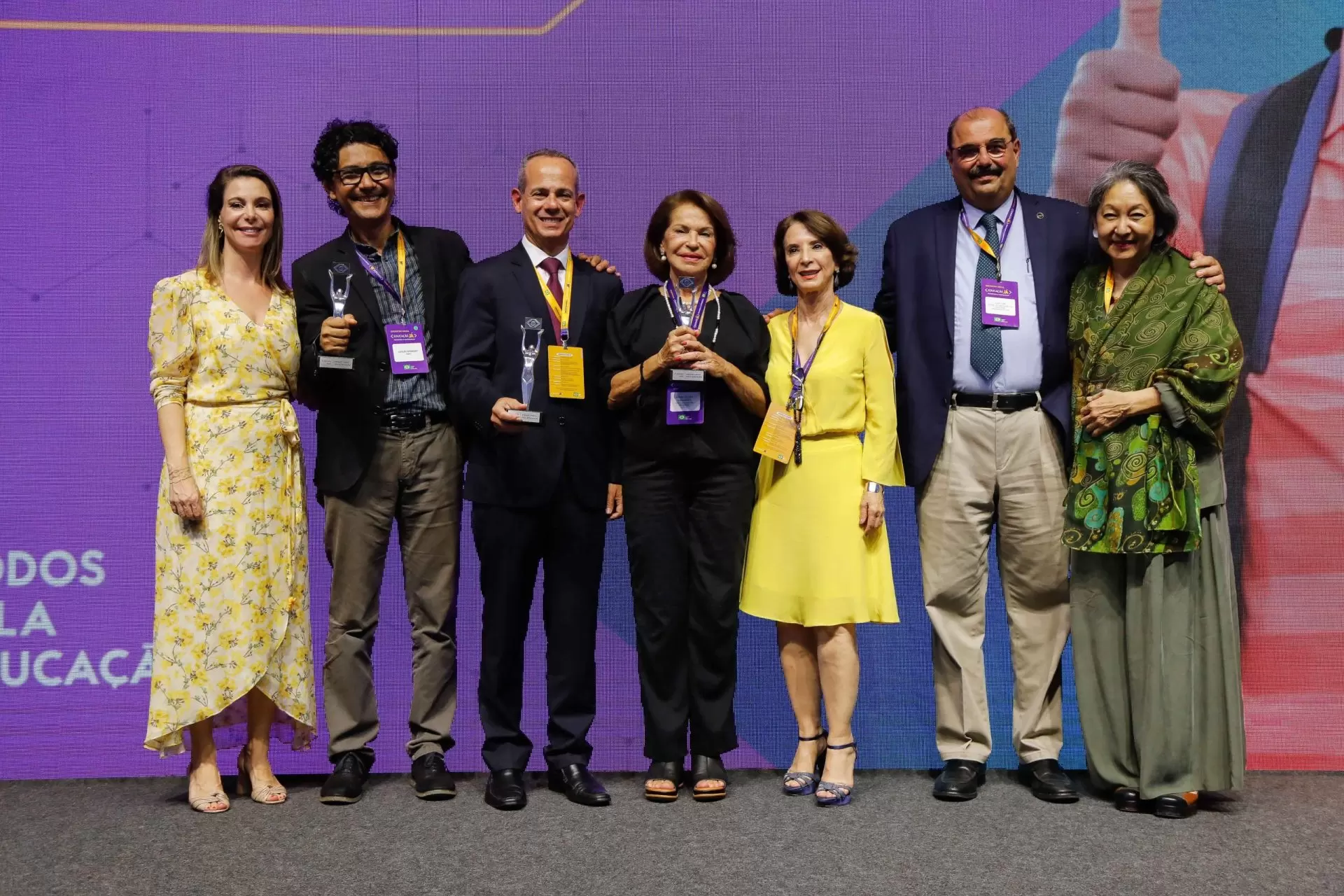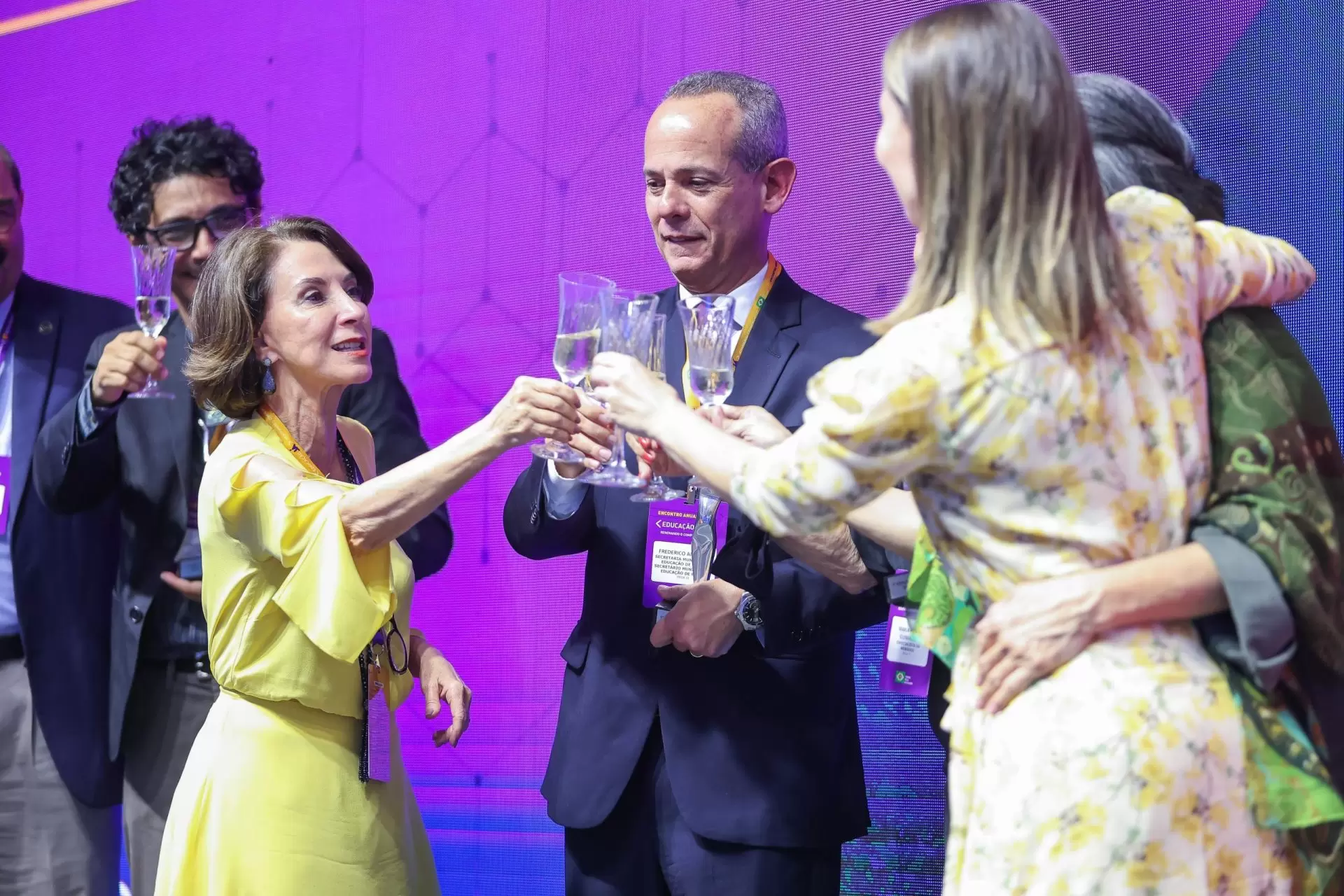1st Todos pela Educação Award honors three personalities
Awardees made significant contributions to Brazilian Public Basic Education in 2019
It took place last Tuesday (26), in São Paulo, during the Annual Meeting Educação Já, the first Todos Pela Educação Award. Originally scheduled for early 2020, the celebration was postponed due to the Covid-19 pandemic. Seeking to honor and recognize the work of people who contributed to Brazilian Basic Education in that year 2019, Todos Pela Educação contemplated three personalities who stood out in this journey of teaching children and young people. “The focus of this award is to give visibility to those who act to change the reality of Basic and Public Education, with a focus on advancing public educational policies”, said Priscila Cruz, executive president of Todos, at the end of the event.
The laureates received the prizes from the hands of the judges present at the event, who also participated in the delivery of the prizes: Luiz Liza Curi, Former President of the National Council of Education; Raquel Teixeira, current Secretary of Education of Rio Grande do Sul; and Ana Inoue, superintendent of Itaú Educação e Trabalho, and also a member of the board of Todos Pela Educação.




CLICK HERE FOR MORE PHOTOS OF THE AWARD
Awarded
The first recipient was Carlos Eduardo Moreno, from the Anísio Teixeira National Institute for Educational Studies (INEP), for his outstanding work with educational data, which favors the continuity of public policies in the area.
The second winner was Frederico Amâncio, former State Secretary of Education of Pernambuco (2014 and 2020), and today Municipal Secretary of Education of Recife, a personality that synthesizes two movements that express the leading role of states in Brazilian Education: the production of solutions with large-scale results and the exchange of these experiences.
The third recipient of the night was Maria Helena Guimarães de Castro, former Executive Secretary of the Ministry of Education (2018), for contributing directly to a series of policies that redefined the educational scenario, such as the National Common Curricular Base, the new High School and the basis for teacher training.
Selection criteria
The main criteria evaluated for the final choice were: the relevance of the contribution to the advancement of public policies, openness to dialogue and respect for differences. There were more than 100 names nominated and the 10 most voted were part of a list of finalists. From this list, the jury selected the three winners.










